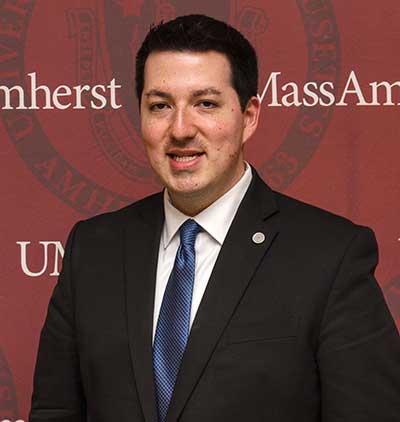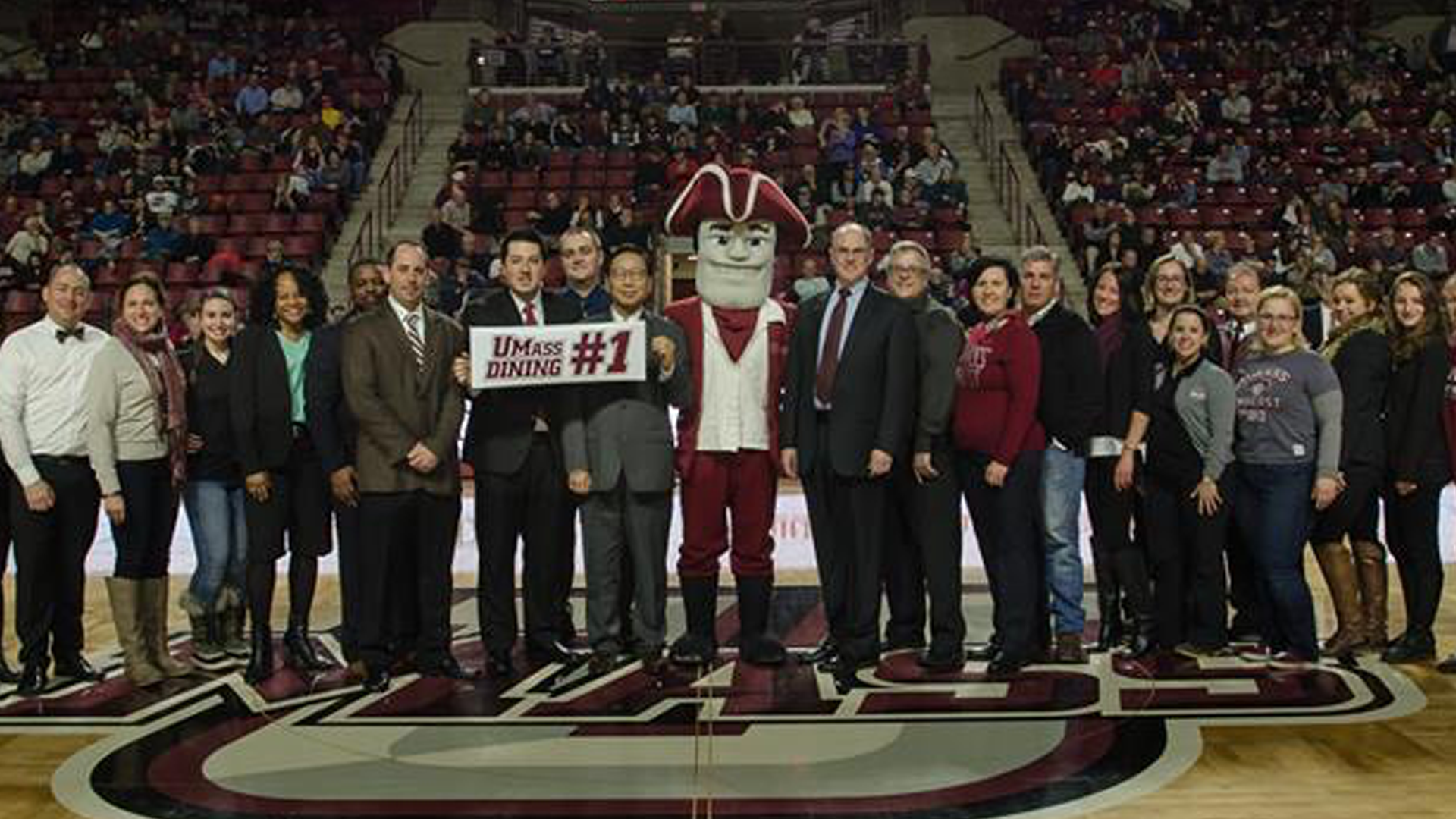By Elena Lamontagne, UMass Amherst Alumni Association
 It takes teamwork and planning to serve 45,000 meals each day according to Christopher Howland ’03, ’08 MBA, director of purchasing and marketing for UMass Amherst Auxiliary Enterprises. “Everything we serve is made with the highest quality ingredients by well trained staff,” says Howland. “There is a lot of care and love that goes into what we do.”
It takes teamwork and planning to serve 45,000 meals each day according to Christopher Howland ’03, ’08 MBA, director of purchasing and marketing for UMass Amherst Auxiliary Enterprises. “Everything we serve is made with the highest quality ingredients by well trained staff,” says Howland. “There is a lot of care and love that goes into what we do.”
In his role, Howland oversees the purchasing, inventory, vendor contract negotiations, regulatory compliance and marketing for all food service on the flagship campus. “It’s important that family and student dollars are used wisely to purchase the best quality ingredients at the best price,” he notes.
Food service wasn’t exactly ‘on the menu’ when Howland enrolled at UMass Amherst in 1999. “I wanted to be a veterinarian,” he recalls, “so I enrolled as an animal science major. But at the end of my junior year, I realized that being an animal vet wasn’t for me.”
Not sure what to do next, Howland took a student job delivering mail for Auxiliary Enterprises during his senior year. The part-time position turned into a full-time job in the Purchasing Department after graduation. “I worked my way from clerk to buyer, assistant manager, manager and now director of purchasing.”
At the urging of his boss, Ken Toong ’04 PMBA, executive director of Auxiliary Enterprises, Howland enrolled in the Isenberg School of Management MBA program. “Getting my MBA was one of the best decisions I’ve made,” states Howland. “It’s opened a lot of doors for me and allows me to work on some very innovative projects.”
Among those projects is the Local, Healthy UMass Food System Initiative. A cutting-edge approach to sourcing healthy foods and contributing to a resilient New England food system, UMass Dining invests some $4.7 million (including 30% of its produce budget) in sustainable foods each year, with more than half sourced from New England farms, cooperatives and vendors.
“We buy from 80 to 100 different farms and businesses that either grow or produce their own local and regional products,” says Howland.
The UMass Permaculture Gardens, coordinated through Auxiliary Enterprises, also provide UMass with organic produce. The student-run gardens, which turn unused lawn space into ecological and edible landscapes, have produced over 5,000 pounds of fresh, local produce for UMass dining commons. Tours and harvesting at the Franklin Permaculture Garden will take place during Alumni Weekend.
In addition, UMass became the largest university in America to sign the Real Food Challenge—an agreement committing UMass to assuring that 20% of the university’s food purchases come from socially responsible farms and food businesses by 2020.
“Day in and day out, our goal is to deliver an exceptional dining experience unlike any other,” says Howland. “At any given time, we have fifteen different world cuisines in the dining commons. My advice to anyone coming to campus is to look at all the options and try something new. And if you have a chance, ask the chefs about the meal and its ingredients—they love sharing their passion for food. We all do!”
